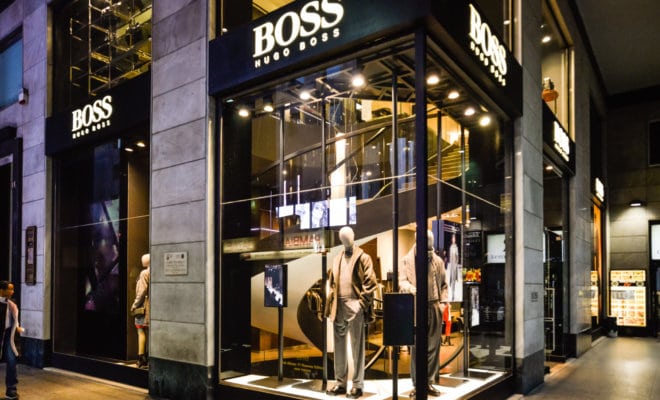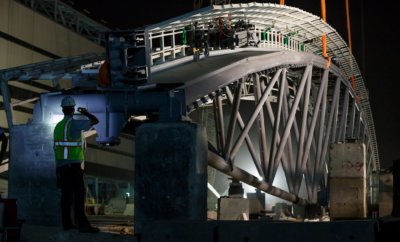Business
Forced Labor Prevalent at Indian Factory Supplying to Hugo Boss: Report

Hugo Boss store in Milan.
Bigstock
Hugo Boss had earlier raised concerns over the modern day slavery practiced at a Tamil Nadu factory.
Luxury fashion retailer Hugo Boss has raised concerns over the lack of free movement of employees at factories in its supply chain in south India. Best Corporation, the company that supplies garments to Hugo Boss and others like Next and Mothercare, was found to hold its workers captive in its Tamil Nadu factory premises, the Guardian reported.
German retailer Hugo Boss, which raised concerns over the issue in its 2016 sustainability report, said in a statement that it has been in regular contact and intensive exchange with the body-wear supplier to work on changes together and to achieve improvements in the mentioned areas.
A research group called India Committee of Netherlands (ICN) also recently found various forms of modern slavery prevalent in spinning mills in south India.
After speaking to authorities at 743 spinning mills in Tamil Nadu, almost half of all the mills in the region, it was found that at least 90 per cent of them have some form of modern slavery.
A former worker, 18, told ICN, “I was promised that I could continue my studies, but instead was forced to work for 12 hours in a shift. Supervisors torture girls to extract work beyond their capacity.”
The ICN report revealed that young girls and women — the majority of whom are Dalits — are held captive by employers who withhold their wages or lock them up in company-controlled hostels. A majority of the workers are between 14 and 18 years old while 10-20 per cent are younger than 14 years old.
Many of the factory owners cited worker safety as the reason for the human rights violation.
“Earlier, mills used to recruit girls through contractors. Now, they use workers to coax their friends to join mills for work. Many adolescent girls from Tirunelveli, Virudhunagar, Ramanathapram and Pudukkottai have fallen prey to the self-proclaimed schemes of the mills,” C Nambi, the executive director of Centre for Social Education and Development (Csed), said in Dec. 2017, according to an earlier Times of India report.
“There is no proof or documentation for the girls, who work under such schemes. They join as apprentices and come out as apprentices. Legally, only 10 per cent of a firm’s workforce can be apprentices. But, 70-90 per cent of workers at such mills are apprentices,” Nambi said.
Apart from working upwards of 60 hours a week, they face sexual harassment and do not even earn the minimum wage. They are also stopped from leaving the hostels after work. A significant part of their wages are withheld until the end of their contract, in a practice called Sumangali Scheme, which is equated to modern-day bonded labor.
“We have raised the issue for five years now, but even to us the scale of this problem came as a shock,” Gerard Oonk, the director of ICN, said in the report.
Of the 743 mills surveyed, only 39 mills were found to pay the legal minimum wage, employees at almost half the mills work 60 hours a week, only 10 mills have a trade union and only 33 mills have a workers committee where they may be able to express grievances.



